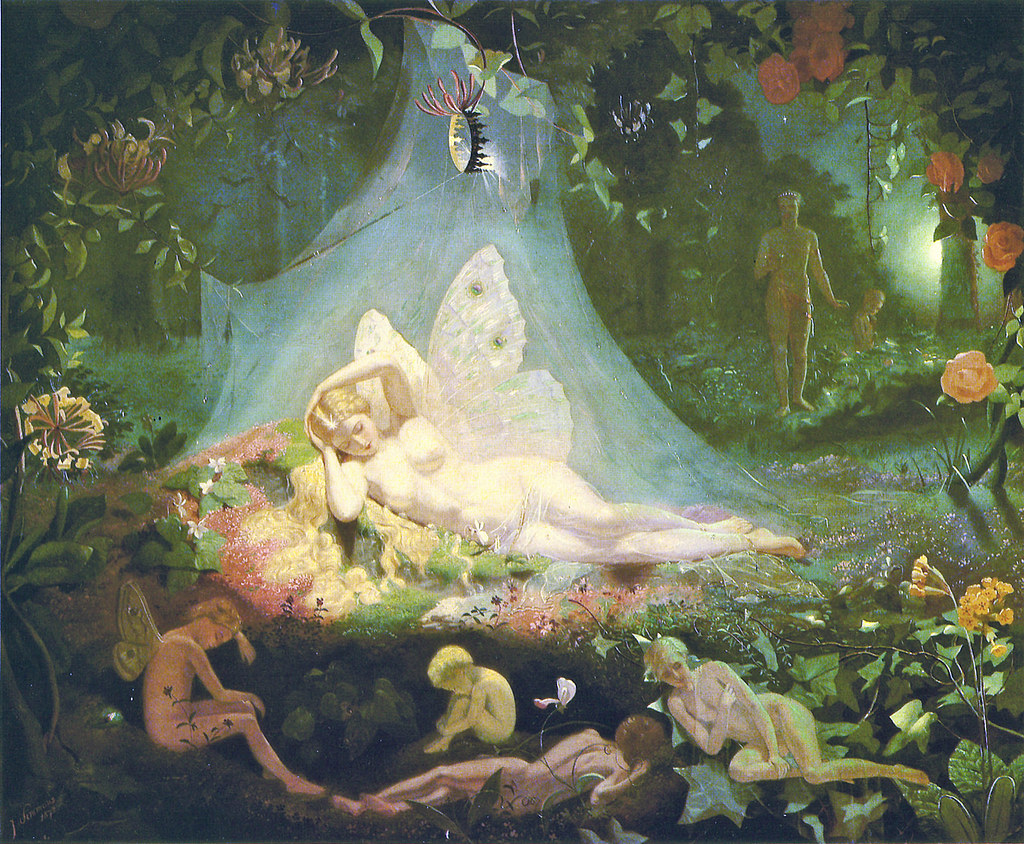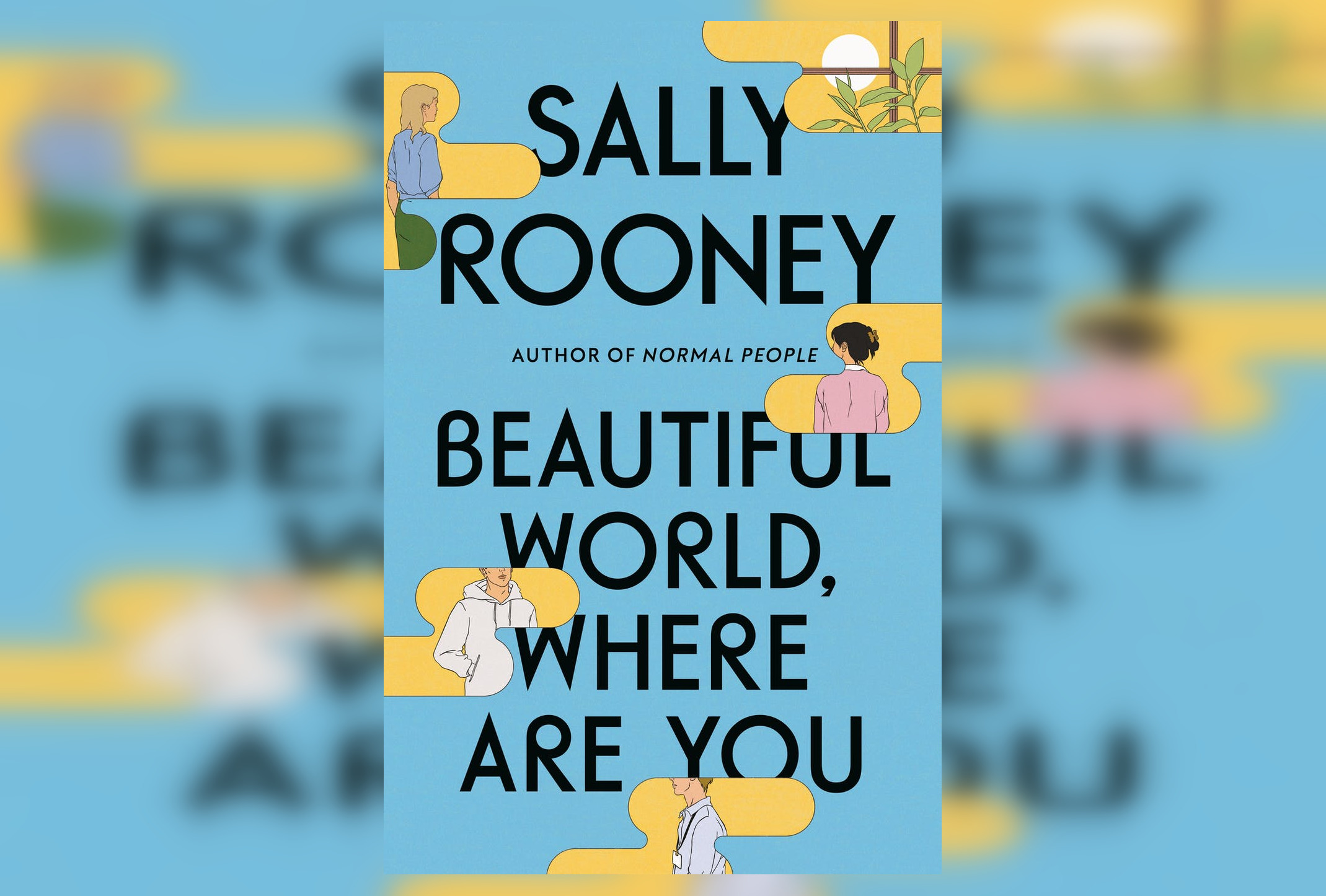The End
As the poet David Berman once said: just because everyone has died so far / doesn’t mean that we’re going to.
He killed himself, which goes to show that poems are easy to misunderstand, at least according to my students.
I don’t teach anymore.
When I first saw Lake Superior as a boy, I didn’t know for sure that the other side existed, but my father told me we could drive there. He said everything has an end eventually. I won’t go all the way back to the beginning, but the end of my teaching career was definitely the night Peter Pan introduced himself to me in the Luce County jail.
How to Tell Time
I don’t always know the difference between remembering and seeing, but Tinkerbell says that’s okay because only a fool believes in time and memory both. Time, she laughs, and it sounds like a faraway bell. Tinkerbell says an easy way to know if you’re in the past or not is if people feel free to smoke indoors and you see birds everywhere. Tinkerbell said Peter never believed in time or memory, which is why he never grew up.
The Gospel According to Tinkerbell
Tinkerbell once told me that she’d met Jesus but of course she’s a terrible liar about things like other faeries. She gets jealous. She said she was at the Last Supper and that the wine was her faerie wine and the bread was her faerie cake. The Catholic Church created Communion as a way of trying to copy her recipe. It’s definitely true that if you eat the bread a faerie gives you it’s hard to leave them. Everyone knows that.
I asked her why she didn’t save Christ if they were friends. She said that Jesus was a lost boy just like Peter; he had a scary father who never took him fishing or built things with him and so he surrounded himself with a bunch of boys who liked to fish (“You make him sound like Huck Finn,” I said) (“No,” Tinkerbell said, “he’s like Peter. Just like!”). Anyway, Jesus was stubborn but she went back to him a few days later and moved the stone. They flew to Neverland together, where he is now. That’s what she told me. But like I said, you can’t believe everything Tinkerbell says.
Wonderstanding
Tinkerbell said some faeries are hawkish and bloodthirsty and not to be trusted. And some simply think it’s fun to lie, especially to people and dogs. But there is also wonderstanding, which makes talking to people occasionally worthwhile. She describes it as “like the spray of shadows and light under leaves.”
It happens sometimes.
The day I turned fifty-two, I didn’t even know what wonderstanding was. I had no cake and no candles, but my birthday wish was for a friend. That was the night I met Peter Pan.
Getting Arrested & Losing my Job Was Not the Worst Night of My Life
“I can’t tell you my name,” the boy whispered, “but if you think of the worst peanut butter you ever ate in your life, you won’t be far wrong.”
“Your name is Skippy?” I said.
“Don’t be a jackoff,” he said. “You know who I am.”
The boy told me his lawyer could easily get me out of a flimsy DUI charge. I didn’t have a lawyer because I’d never been arrested before.
“Well, there is the problem,” I said. “It’s not just DUI. I struck the officer.” “Allegedly.”
“No, no. I did.”
“You allegedly did. Holy Christ, is this your first time at county?”
“Yes.”
“Well, I’m not a lawyer,” the boy said, “but I counsel you to shut the fuck up. Seriously! Stop confessing to everyone. You don’t know me! And don’t believe a word a cop says to you. What they say doesn’t matter. They’re not under oath when they ques- tion you. Actually, I think you should ask some questions about your condition when you were brought in. Maybe you broke that cop’s nose because she was using undue force on you. If you were the victim of racial profiling, that’s really the kind of thing Moe can help you with. He’s all over that stuff. He’s like you: not quite white. And he was raised by an uncle who was a Black Panther. Old school justice. We think Dr. King was naive. Passive resistance won’t get you anywhere in here.”
“What do you mean, not quite white?”
“You’re not, are you? Nothing to be ashamed of.”
“You’re right,” I said. “I’m not quite white.”
“I’m not quite anything either,” the boy laughed. He had just told me to stop confessing to everybody, but then he batted his eyes and whispered: “Okay, now . . . Go on, please? Tell me a story. I know you know one.”
My co-workers had mocked me because I spent $4,000 on my dog’s hip re- placement. The basketball coach who came to school in a Lincoln Navigator said that he would never drive a car that cost less than his dog’s ass, but I could do what I wanted since I was ostensibly a grown man.
“I think that last bit was about my height,” I told Peter, “but who cares?”
Peter reached out to flutter his fingertips against my arm. “The fucking bastards!” he hissed. “Tall people are the worst. I hate them. You can always smell their big feet.” He pinched his nervous hands in his armpits as he leaned forward to ask me question after question.
He interrogated me for hours (“What kind of dog do you have? I guess those are okay . . .”)(“When you say green, it’s important to me, I need to know: what kind of green?”)(“Do you know what a thimble is?”). He leaned forward to listen, as if he were staring at my words before they disappeared in the air.
An Attempt at Chronology
There’s a Sufi story in which a man is weeping, pulling his beard, tearing his shirt in the street. When strangers ask him why, the man explains that it’s the worst night of his life; he has just seen his father die. The Sufi says, “This is your worst night? You got off easy compared to your father.”
To be clear: I wasn’t there when Peter Pan died. That was later.
A Confusing Lesson in Storytelling
I once got seated beside a six year old on an airplane, and she told me a story that was three hours and thirty minutes long. Every sentence started, “And then,” which I found confusing because I’ve spent so much time in Neverland, where everything hap- pens at once.
There We Still Were
When Peter died, it was the saddest I’d ever been as an adult. But Tinkerbell said that just because one thing ended, it didn’t mean life was over. Tink said she had died many times and it hadn’t changed a thing. How many times had the sun set? Had the moon wandered all quiet and clear across the sky? How many times had the sun come up over the ocean, pushing waves in front of it all lavender and coin-colored in the winelike dawn? And yet, there we still were, fighting like children.
Tink said she didn’t really like children; that was Wendy’s thing. But she liked me, even if I was fifty-two years old and had never had grown up properly and still be- lieved in stupid things like school. I wasn’t exactly a little boy even though I cried like one.
She was glad I was alive, she said, and she kissed me, which felt like someone holding a match too close and shaking it out with the sound of tiny bells. She asked why I’d even want to be a teacher, anyway, and I admitted that I didn’t.
The Ugly Duckling
I told Tink I was going to start over, write everything down that had happened to me, and describe what it was like. I was going to rise like a phoenix, I said. She said that reminded her of a story.
One duck always suspected his mother didn’t love him. His father never seemed to recognize him, either. This duck didn’t fit in with the others. He felt he was too skinny and his neck was too long and he was the wrong color. He was ugly and he couldn’t make a proper quacking sound so mostly he stayed apart and silent. And then one day he saw two swans in the lake. They had flown in from somewhere and were gliding be- neath the green curtain of a willow tree.
Tinkerbell says this is when she told the duck about swans and how they were silent most of their lives but made one great song right before they died. The little duck felt a sense of relief, as if his entire life suddenly made sense, but, of course, that was ridiculous, Tink said, and she laughed when she described him to me.
According to Tinkerbell, the moral of the story was that all ducks look alike. There is no such thing as an ugly duckling when no one can tell two ducks apart. She said she just thought I’d like the story because it had birds in it.
Why Bother?
Tinkerbell thought it was silly that stories were taught in schools or might have a moral. She didn’t think you went to stories to learn things.
I said it had always been very important to tell stories and to pass them on. Jesus was quite fond of it. Also, Abraham Lincoln.
I asked her why people told stories, in her opinion.
She said, it was obvious. You told stories to make friends.
Memento Mori
When my students heard I was turning fifty-two, one boy said I looked pretty good for being middle-aged, but a girl said I was only middle-aged if I lived to be a hundred and four, which stung.
“Tempus fugit,” the girl said. Minjung was one of my best literature students ever, but after I got arrested, her father asked the guidance counsellor if they could replace my letter of recommendation with someone else’s. I saw her and her father in the office and she avoided my eyes. “It’s nothing personal,” her father said, “but obviously college admissions is very important to Minjung.”
“Sic transit gloria mundi,” I said to Minjung. “Don’t worry about it. I’m just here to get my thermos.”
She asked where I was going to go now that I was no longer a teacher. I wanted to say “far, far away,” but all she heard was, “It doesn’t really matter,” which was also true.
Tinkerbell Said the Truth Doesn’t Care What You Believe
Tinkerbell said I shouldn’t believe everything Oberon had told me. He might be a king, but he was a faerie, she said, and sometimes they get confused about things. She said she used to get confused about things, but then she died. I said, wait, wait, I never know when to believe you. She said Jesus had the same problem: you tell the truth and no one believes you just because you don’t make sense. As if something true had to make sense or be the same two days in a row. She said I would understand eventually.
Tink said she wasn’t sure about Wendy, though—Wendy might never get it because Wendy had always been a little dumb.
Tinkerbell said Peter might come back one day. You never know. Anyway, I could always read the book again if I wanted. I could remember how it felt. That was a way to time-travel if I believed in that kind of thing.
TIME, that is. She laughed when she said it.
Shot Out of a Canon
Growing up in Michigan, why did I ever read any of those 19th century Russian writers? The same old reason, I suppose.
I was lonely.
If I Start Again, It May Come Out Differently
I want to tell you what happened to Peter.
I’m afraid I won’t have enough time, but Tinkerbell says I shouldn’t worry about that. People telling stories to each other, she says. It never ends.
The Ouroboros
Sometimes it’s hard to know when one thing is over and another has begun. Alchemists used to call this the ouroboros, and drew it as a snake eating itself. I once asked my students if “one thing ending, another beginning” couldn’t have a more hope- ful symbol, and Minjung suggested the bread basket at Olive Garden.
A boy drew a picture of both symbols on the board and labelled it, “The Olive Garden of Eden.” Every time a janitor erased it, the boy would draw it again, which seemed fitting.
Good-bye, Good-bye
I once read that after he was shot, the poet Pushkin was carried home by onlookers. Pushkin’s doctor said the poet had lost too much blood. The doctor recommended the writer say good-bye to his friends.
The poet, lying in his library, turned to his books. “Good-bye, my friends,” he said.
I always thought that if I had a real friend, I would tell them everything, which is what I’m doing now, with you. I am writing this letter and hiding it in a book, where it belongs.




